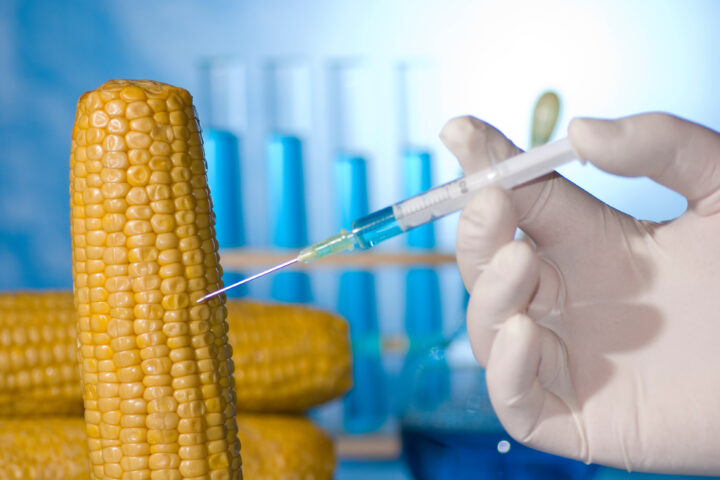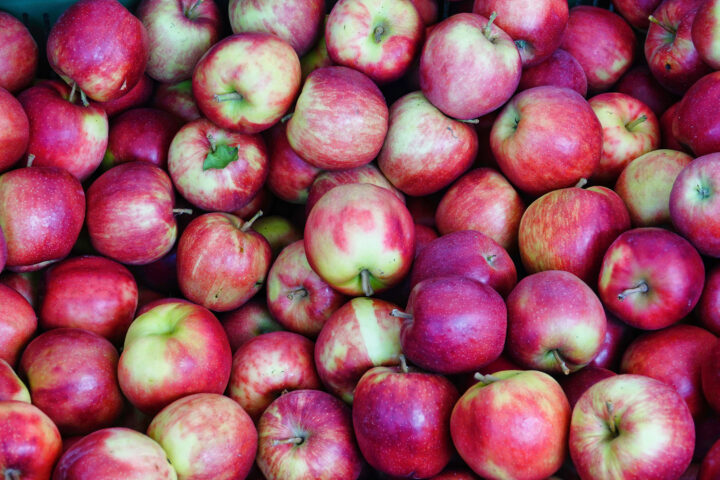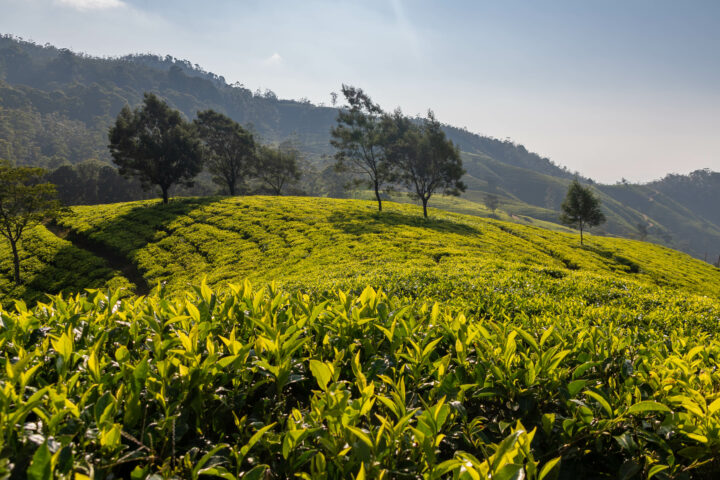«Is organic really healthier?»
Anna Bozzi is an analytical chemist. She heads the Nutrition and Agriculture division at scienceindustries. A balanced diet with a regular variety of fruits and vegetables is a crucial factor for a healthy lifestyle. However, whether the food comes from organic production is not decisive. Basically, all food is equally healthy (or unhealthy), she writes.
Monday, March 22, 2021
Content in German
Ob ein Lebensmittel eine Auswirkung auf die menschliche Gesundheit hat, hängt in erster Linie von seiner Zusammensetzung ab. Früchte und Gemüse enthalten besonders viele Mikronährstoffe und sekundäre Pflanzenstoffe. Diese haben einen positiven Effekt auf die Gesundheit und sollten deshalb Bestandteil einer ausgewogenen Ernährung sein. Das Mikronährstoffprofil sowie der Anteil an sekundären Pflanzenstoffen (z.B. Antioxidantien) hängen unter anderem von Sorte, Anbaumethode und Umweltbedingungen ab. Hinzu kommen verschiedene Faktoren nach der Ernte, wie die Lagerung oder Zubereitung von Lebensmitteln.
Zahlreiche Studien haben sich mit den Auswirkungen von biologisch angebauten Nahrungsmitteln auf die menschliche Gesundheit befasst. Einige Studien kommen zum Schluss, dass Biolebensmittel einen höheren Anteil an Mikronährstoffen und Antioxidantien aufweisen als Produkte aus der konventionellen Landwirtschaft. Andere Studien kommen wiederum zum gegenteiligen Ergebnis.
Ein gesunder Lebensstil bedingt keine Bio-Produkte
In einer umfassenden Metastudie aus dem Jahr 2012 haben sich US-Forscher die Ergebnisse von insgesamt 223 Studien angeschaut. Demnach weisen Bioprodukte keinen höheren Vitamingehalt auf. Auch bei der Zusammensetzung von Fetten und Proteinen unterscheiden sich Bioprodukte nicht von konventionell angebauten Produkten. Einzig der Phosphorgehalt scheint bei Bioprodukten leicht höher zu sein – allerdings bewegen sich die Zahlen in einem klinisch nicht relevanten Bereich. Es gibt auch Studien, die darauf hinweisen, dass Biolebensmittel das Risiko für Fettleibigkeit verringern. Hierbei handelt es sich aber sehr wahrscheinlich um Korrelationen und nicht um Kausalitäten. Konsumentinnen und Konsumenten, die Biolebensmittel bevorzugen, tendieren auch sonst generell zu einem bewussteren und somit gesünderen Lebensstil.
Bio und konventionelle Produkte sind gesund
Spuren von Pflanzenschutzmitteln finden sich sowohl in konventionell als auch in biologisch produzierten Lebensmitteln. Die in der Schweiz verzehrten Lebensmittel sind allerdings nach wie vor grösstenteils frei von Rückständen oder enthalten Rückstandsmengen, die innerhalb der strengen gesetzlichen Grenzwerte liegen. Eine gesundheitliche Gefährdung kann somit ausgeschlossen werden.
Ausgewogene Ernährung und Bewegung entscheidend
Die Behauptung, dass Bioprodukte gesünder sind als Produkte aus der konventionellen Landwirtschaft ist falsch. Sie lässt sich wissenschaftlich nicht belegen. Klar ist: Eine ausgewogene Ernährung mit regelmässig viel Früchten und Gemüse in Verbindung mit genügend körperlicher Aktivität bietet die beste Voraussetzung für eine gute Gesundheit. Ob Bio oder nicht spielt für die Gesundheit kaum eine Rolle.
Related articles

Science resists ban on GMO crops
The Supreme Court in the Philippines wants to stop the cultivation of genetically modified plants Golden Rice and Bt aubergine (Bacillus thuringiensis). This is anything but well received by the government and the scientific community: The ban could jeopardise the country's food security.

Enabling what is inevitable
The opponents of progress are once again in the starting blocks. In mid-April, critics of genetic engineering announced a popular initiative aimed at making any relaxation of the existing moratorium on genetic engineering impossible. The exact wording is not yet known, but the statements made by the exponents make it clear that the total blockade on modern plant breeding is to be enshrined in the constitution.

Where the focus lies in apple breeding
The new head of Agroscope's fruit breeding research group is Andrea Patocchi. In an interview with the trade journal Obst + Wein, he explains where the focus of apple breeding lies today.

Chinese robot picks tea
There is a shortage of tea pickers in China. A robot developed by a researcher is set to remedy the situation and take over the work in future. Thanks to artificial intelligence, the machine can even recognise the shoots of the tea plant. The first harvesting robots are also already being developed in Switzerland.

